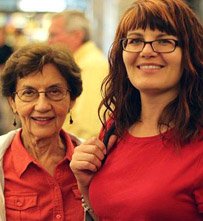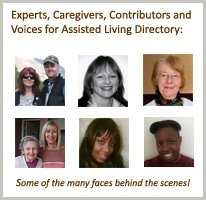Dementia - Understanding The Different Types, and Causes of Dementia

Summary: Dementia is often misunderstood. Many people with this disease, especially the elderly, require assisted living that specializes in dementia care and memory disorders. This page will help you to learn about the different types and causes of dementia.
We also include a video conversation with Harry Urban, who “has been living successfully with dementia, probably Alzheimer’s, for more than a decade.
Dementia is a neurological disorder that is often very misunderstood. If you were to ask a person on the street what they thought dementia was, they would probably reply with “crazy” or some variation that is surface-level, and stereotype.
Our culture has not helped people to understand dementia either. Movies or television, or even our day-to-day conversations have widely used phrases such as “he is demented” or “that’s demented” – phrases that are used to conjure up images of mental instability or craziness. Dementia is more complex than these phrases would imply, and the causes and effects of dementia are complicated and far-reaching.
Many people also assume that Dementia is Alzheimer’s. A number of disorders can cause dementia, and we should not always assume that it is Alzheimer’s.
An excellent 1 minute+ video by the Alzheimer’s Association of California and Nevada: Question and Answer: Dementia and Alzheimers
So what is Dementia? In basic terms, dementia is a “neurological disorder that affects your ability to think, speak, reason, remember and move.” It is true that Alzheimer’s disease is the most common form of dementia, however, there are many other conditions that can cause dementia-like symptoms. Some of these disorders do get worse over time, and are progressive. However, some of them respond well to treatments, and thankfully,with some types, the symptoms can even be reversed.
Another clinical definition dementia is: Development of multiple cognitive deficits that include memory impairment and at least one other cognitive domain: aphasia, agnosia, apraxia, or a disturbance in executive functioning. (From DMS-IV-TR,2000)
There are a number of types of dementia, and at times, a person can have more than one of these types at the same time. The most common forms of Dementia are:
Lewy Body Dementia: Lewy bodies are abnormal clumps of protein that have been found in the brains of people with Lewy body dementia, Alzheimer’s disease and Parkinson’s disease. Lewy Body Dementia is a “progressive brain disease and the second leading cause of degenerative dementia in the elderly.
The clinical name, “dementia with Lewy bodies” (DLB), accounts for up to 20% of all dementia cases, or 800,000 patients in the US. Over 50% of Parkinson’s disease patients develop “Parkinson’s disease dementia” (PDD), which accounts for at least 750,000 patients. (PDD is also a Lewy body dementia.)”
Frontotemporal dementia: This is a form of dementia that affects areas of the brain that are responsible for judgment and social behavior.This form of dementia usually appears in people between the ages of 40 and 65.
A number of other disorders are related to dementia. These less common disorders can also result in dementia: Huntington’s disease, Parkinson’s disease, Creutzfeldt-Jakob disease, and AIDS.
Often times, people with dementia, especially the elderly, need to live in an assisted living facility that offers specific care for dementia and memory disorders. There are numerous assisted living facilities listed on this site that specialize in dementia, as well as care or other memory disorders, including Alzheimer’s disease.
Conversation with Harry Urban about United Against Dementia
Harry has been living successfully with dementia, probably Alzheimer’s, for more than a decade:
Resources:
The Mayo ClinicLewy Body Dementia Association The Association For Frontotemporal Degeneration – Partners In Care – Many FTD patients have a particularly difficult time finding suitable assisted living facilities for several reasons. Many times, staff do not know what FTD is or how to handle a patient with it.
FTD patients are often younger, stronger and have behavioral issues that are not present with Alzheimer’s or other dementias.This combination makes it very hard for our families to find a good living arrangement for their loved one. As an aside, AFTD just launched an education initiative called Partners in FTD Care, which is aimed at working with long-term care facilities (and day facilities) to provide educational tools to facility staff so that FTD patients get the best care possible. The Association for Frontotemporal Degeneration offers a comprehensive view on FTD to help families and individuals to understand this disease process, and just as important – the AFTD is committed to finding a cure, and ‘opening gateways to help.’
Responses to this article:
Margo Wrote:
My aunt, who has mild dementia but otherwise healthy, will need to go into assisted living in the near future. Her income is her $1900 monthly social security check – no savings, no assets, no life insurance, no house – just that check which disqualifies her from Medicaid. Any suggestions? Thanks!
1 November 2016 at 1:35 pm
Melissa Wrote:
Good overview, and much appreciated that you list other non-commercial sites relevant to dementia. I think so many people are confused by what actually happens with dementia, since it is such a broad term. Are assisted living faciltiies and their staff required to have some sort of certificate or certification to handle dementia residents?
25 August 2014 at 5:15 am
Cecelia Wrote:
Great video by the Alz Association – thanks for sharing that. I wish I could attend some of their talks. They are so well organized and informative!
5 June 2014 at 4:45 pm
Andrew Wrote:
At what point is it officially dementia, as opposed to simple forgetfulness, spaciness, or everyday misplacing things? How do they test for that?
25 July 2012 at 4.11 am
Zach Wrote:
So, if a facility is Alzheimer’s certified, does that mean that they are certified for all dementias, and vice-versa?
28 October 2011 at 9.10 am
Miriam Wrote:
Can spouse live in a Dementia assisted living facility???? miriam
1 June 2010 at 10.48 am
Elaine Wrote:
My mother has Frontotemporal Dementia and is in an assisted living facility right now that cannot handle her disease. Can you tell me of any assisted living places that handle specifically FTD? Elaine
26 February 2010 at 7.22 pm
Gaylin Wrote:
My mother has stopped standing or putting weight on her legs and feet. She is currently in assisted living accommodations but they have informed me that since she cannot stand she no longer can live at an assisted living facilitated but needs to be in a nursing home. Is this one of the symptoms of Dementia? Gaylin
3 November 2009 at 2.40 pm
No Obligation
Assisted Living with Dementia - Understanding The Different Types, and Causes of Dementia




